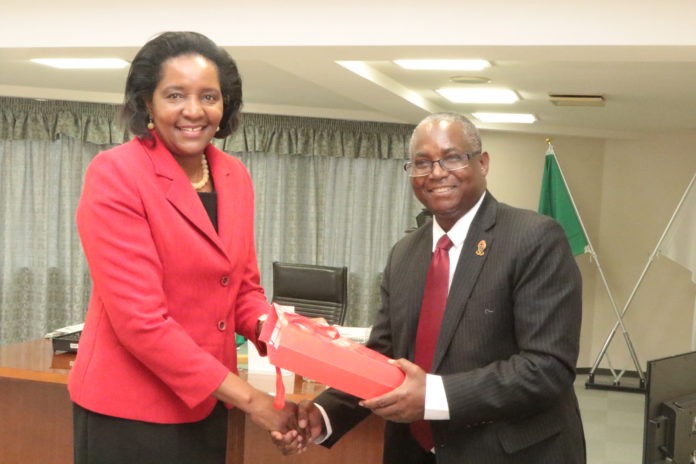These types of diseases range from minor short-term illnesses to major life-changing illnesses. Certain ones can even cause death, unfortunately.
The World Bank has donated US $6 million to establish a Zoonotic Research Laboratory at the University of Zambia (UNZA).
UNZA Vice Chancellor, Professor Luke Evuta Mumba said the laboratory will be a Center of Excellence in the Southern African region for the study of zoonosis which is becoming increasingly important due to rapid world population growth and intensive animal husbandry.
Professor Mumba disclosed this when he paid a courtesy call on Zambia’s Ambassador to Japan, H.E Mrs. Ndiyoi Muliwana Mutiti at the Embassy in Tokyo yesterday.
Zoonotic is a term referring to diseases that can be transmitted from animals or insects to people or more specifically, a disease that normally exists in animals but might as well infect humans. Some don’t make the animal sick but will sicken a human being.
Rabies, Swine flu, Ebola, and Trypanosomiasis (also known as Sleeping sickness) are among the common zoonotic diseases in Zambia.
Professor Mumba and his two man delegation are in Japan to launch the University’s strategic partnership with GIFU University, which is renowned for engineering studies.
During the meeting the Vice Chancellor thanked the Japanese government for funds given towards the establishment of the lab.
He clarified that the grant which was awarded to Zambia when President Edgar Lungu visited Japan in December, 2018 will be used for the rehabilitation and equipping of the Veterinary laboratory at UNZA School of Veterinary Medicine.
Professor Mumba said these latest developments will help UNZA achieve its set goals in the 2018-2022 Strategic Plan.
“We need to set the tone for development of science and technical skills in the country. This means our teaching staff must at all times be exposed to new developments in their fields so that they can pass on appropriate skills to students, Prof. Mumba said.
“The University’s teaching infrastructure and aides must move with the changing technological environment and this requires being part of the international community of researchers to exchange ideas on many challenges facing societies,” He added
The VC also disclosed that UNZA in collaboration with Ministry of Youth, Sports and Child Development will set a Sports department in the School of Education at the University to contribute to the growth of the discipline.
“Worldwide sports have proved to be a lucrative sector with high earnings and potential to contribute to economic development,” observed Professor Mumba.
He has since appealed to the Embassy to help the university identify corporate donors who may be willing to provide the institution with expertise and equipment for academic purposes.
And Zambia’s Ambassador to Japan, H.E Mrs. Ndiyoi Muliwana Mutiti said the mission in Tokyo has continued to strengthen bilateral relations with Japan in many areas including education sector.
She said the mission shall ensure that players in Zambia’s education sector are linked to strategic institutions in Japan to increase interactions and exchanges for the benefit of the country.
Mrs. Mutiti praised UNZA for the strategic approach it has embarked on describing it as key to achieving the Seventh National Development Goals.

